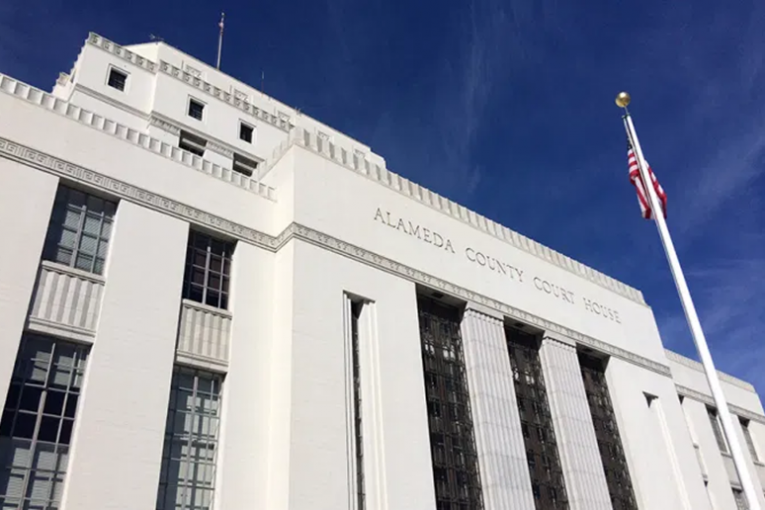

By Ankita Joshi
ALAMEDA, CA – A judge here in Alameda County Superior Court Tuesday ruled charges against an alleged drunk driver should be tossed because of constitutional violations, primarily a violation of her speedy trial rights.
Rose Tahaafe was involved in an alleged DUI and crash on Aug. 3, 2019, and didn’t have a complaint filed against her until eight months later on May 5, 2020.
Much of the evidence was lost in the interim time period, as was the primary witness.
The defense began by outlining the violations that were made against the state constitution which included a loss of the primary witness, the loss of the 911 dispatch audio, and a lack of a legitimate reason for the delay in proceedings.

The defense noted that the conditions of Tahaafe’s case were not only in violation of the state constitution, but the Sixth Amendment of the U.S. Constitution, charging there was “more than minimal prejudice and the justification for the delay is not substantial.”
District Deputy Attorney Thomas Walsh argued that Tahaafe had been called to court at earlier dates and had come to the Fremont Hall of Justice, but wasn’t able to appear in court due to closures because of COVID-19.
Since Tahaafe had received notice to appear in court, DDA Walsh contended that as “she did not ask for an earlier court date, did not talk to an attorney, and did not exercise her right to a speedy trial,” there wasn’t a violation present.
He also noted that the reason why a field sobriety test wasn’t conducted was because there was an odor of alcohol present with an unconscious driver in a rolled over vehicle. As a result, he contended that “there cannot be much discrepancy about the driving.”
The defense chose to respond to these arguments with four different points.
First, it stated that under the state constitution, post-accusation and pre-accusation tests were considered to be the same, so that violation of delaying the complaint by eight months was still valid.
Second, the post-accusation delay period begins with the arrest because a DUI arrest automatically triggers a license suspension. As a result, the delay began at the time of Tahaafe’s arrest, rather than later.
Third, since Tahaafe had gone to court on the days that she was given, “it’s the government’s burden to bring her to court,” regardless of closures due to COVID-19.
Fourth, the primary witness is essential for the trial, as no sobriety test was taken and the car that was being driven was scrapped. The absence of the witness was contended to be “substantially prejudicial against Mrs. Tahaafe.”
In his deliberation over the arguments that were presented, Judge Dennis McLaughlin noted that there was some prejudice present in the loss of the witness and the dispatch audio.
Even though there is “no evidence how it has hampered the defendant’s defense…it does not take a great deal of imagination to see that things that are said by police officers or other percipient witnesses or anonymous callers on the dispatch patch may affect the cross-examination… so it is prejudicial,” stated Judge McLaughlin.
He also mentioned that DDA Walsh had not provided any submissible evidence or justification for the delayed charges, such as a toxicology report or any physical evidence.
As a result, Judge McLaughlin found that even minimal prejudice requires dismissal of this case under the Sixth Amendment.
The matter was dismissed on matters of violation of speedy trial rights and bail was exonerated.






